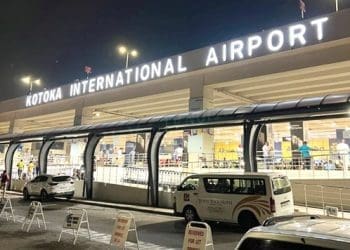The Tema Oil Refinery (TOR) is currently burdened with a staggering debt of approximately $517 million, a situation that continues to hamper efforts to revive Ghana’s only state-owned refinery.
This was revealed by the Acting Managing Director of TOR, Edmund Kombat, who presented a grim overview of the company’s financial and operational challenges.
According to him, the growing debt burden is a result of “a combination of historical liabilities, operational inefficiencies, and persistent maintenance challenges.” He cautioned that unless swift and decisive action is taken by the government and other stakeholders, TOR’s prospects for recovery would remain dire.
He noted that the $517 million figure represents TOR’s debt status as of December 2024.
“We are doing that verification and once we do that verification and authentication of what we have been able to bring down, that will be communicated publicly,” he said.
Speaking during an engagement with the Parliamentary Select Committee on Energy in Senchi on Sunday, June 22, 2025, Kombat elaborated on the sources of the debt, attributing it to trade liabilities, debts owed to third parties, and legacy issues involving unpaid crude oil supplies.
“There were times that the Ministry of Finance in the past had given some funds to TOR and some of it, for example, was grants and then when they entered into the agreement with the IMF, the IMF asked them to reclassify it as debt,” he said.
“So, those things have accumulated to that amount of money and I think the last time TOR traded, some of the trades were not hedged.”
Kombat said TOR’s operational crisis has been worsened by recurring shutdowns, soaring utility costs, and poor refining throughput. He revealed that the Residue Fluid Catalytic Cracking (RFCC) unit has been non-operational since 2019, while the Crude Distillation Unit has also remained idle since 2021.
Upon taking office, the new management team’s first task was to evaluate the state of the plant.
“After assessing the plant, we realised that the plant was in good shape and that with a few technical works we could get the plant back and that is what we have been seriously working on.”
He attributed the deterioration of the plant largely to longstanding debts, noting ongoing efforts to clean up the refinery’s balance sheet.
“We have tried to revalidate some of the debts, do renegotiation and reconciliation.
And as a result, we have worked on it and some of the numbers are coming down and at the appropriate time we will ensure that the figures are out,” he said.
Kombat also highlighted a significant lapse in financial reporting, disclosing that TOR has not audited its accounts for the past six years.
“Since 2019, TOR has not had an audited account and one of the things that we decided to do was to focus on that and bring external auditors.
And we are hoping that by the end of next month, all six years will be ready,” he said.
As part of the refinery’s transformation agenda, he said management had initiated internal reforms, including a shift in staff mindset, performance orientation, and workforce retooling.
“Steps had been taken to change management by re-orienting the staff to refocus them on performance, retool them and give them all the support that they needed,” he stated.
Established in 1963, TOR was once a cornerstone of Ghana’s energy infrastructure.
However, over the last two decades, it has faced a sharp decline due to sporadic operations, outdated infrastructure, and alleged mismanagement. Several reform attempts, including proposed public-private partnerships, have failed to achieve a turnaround.














